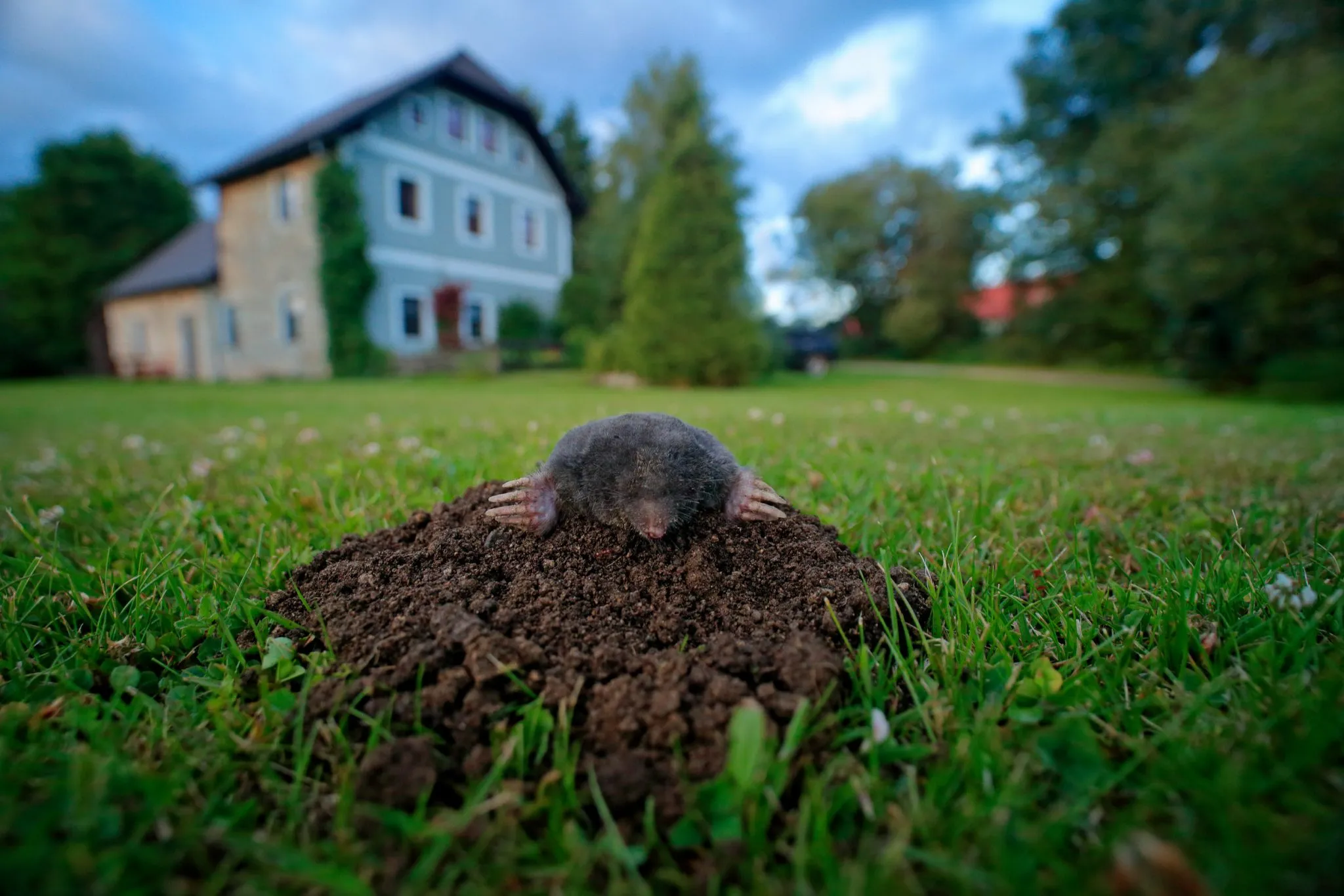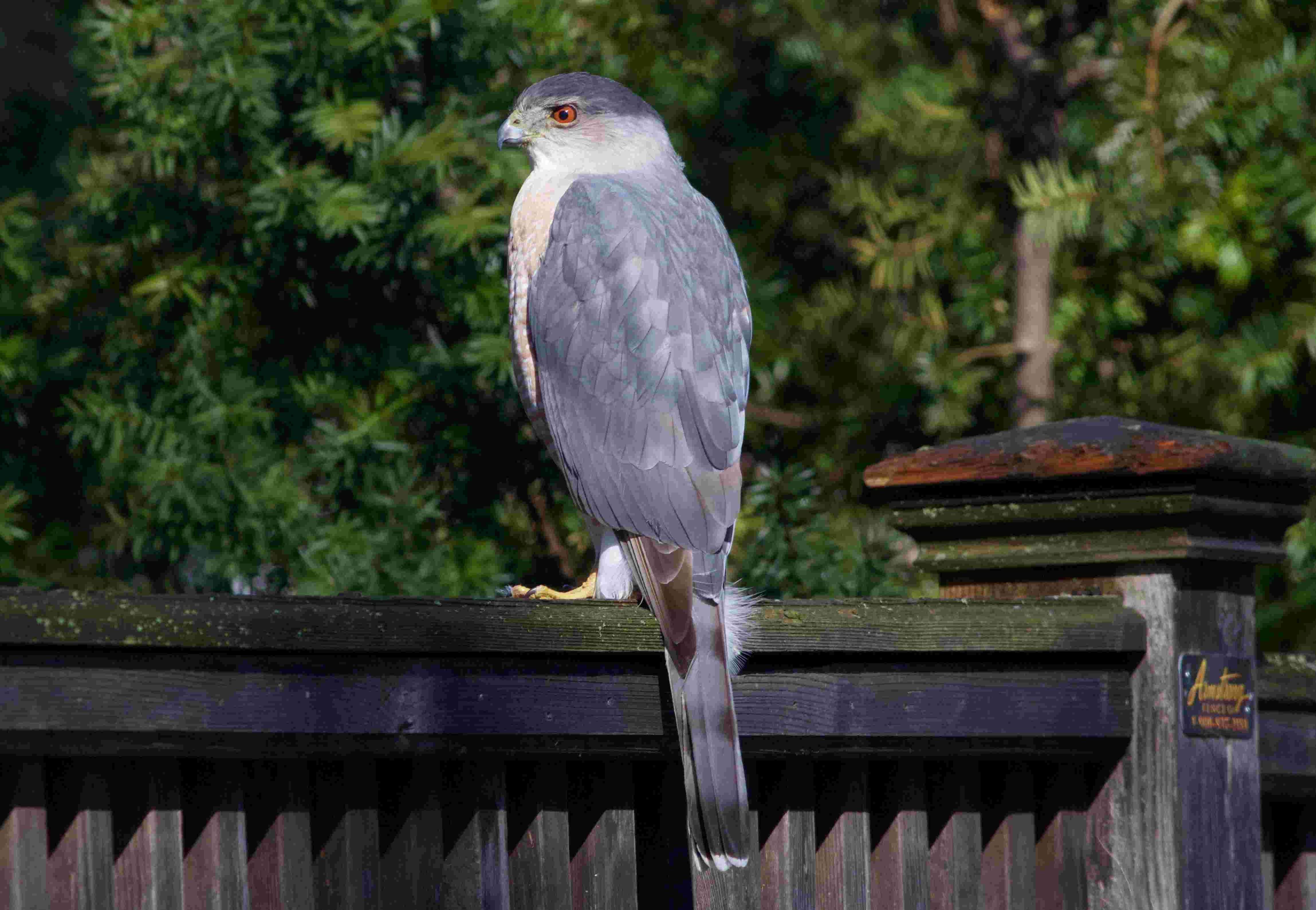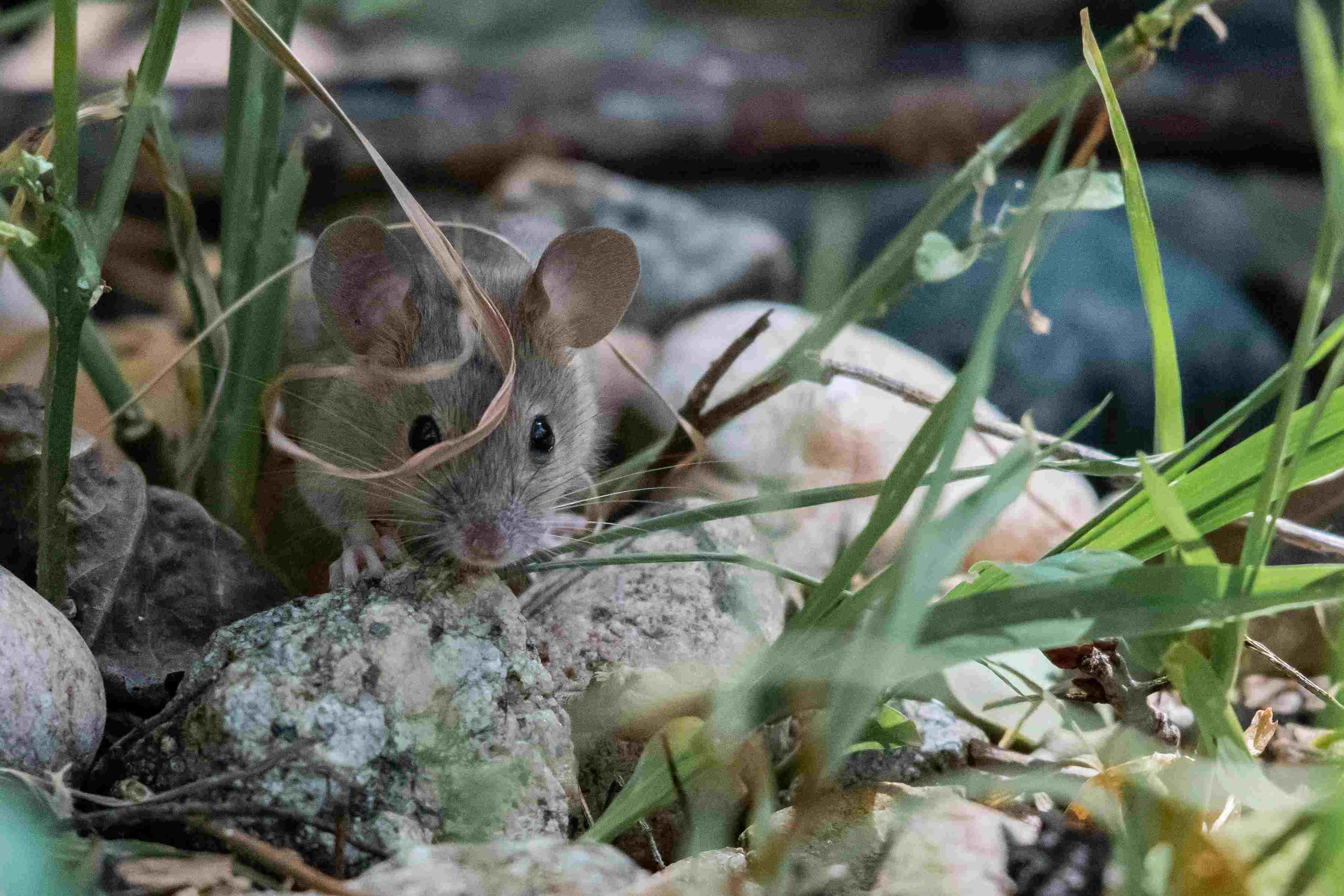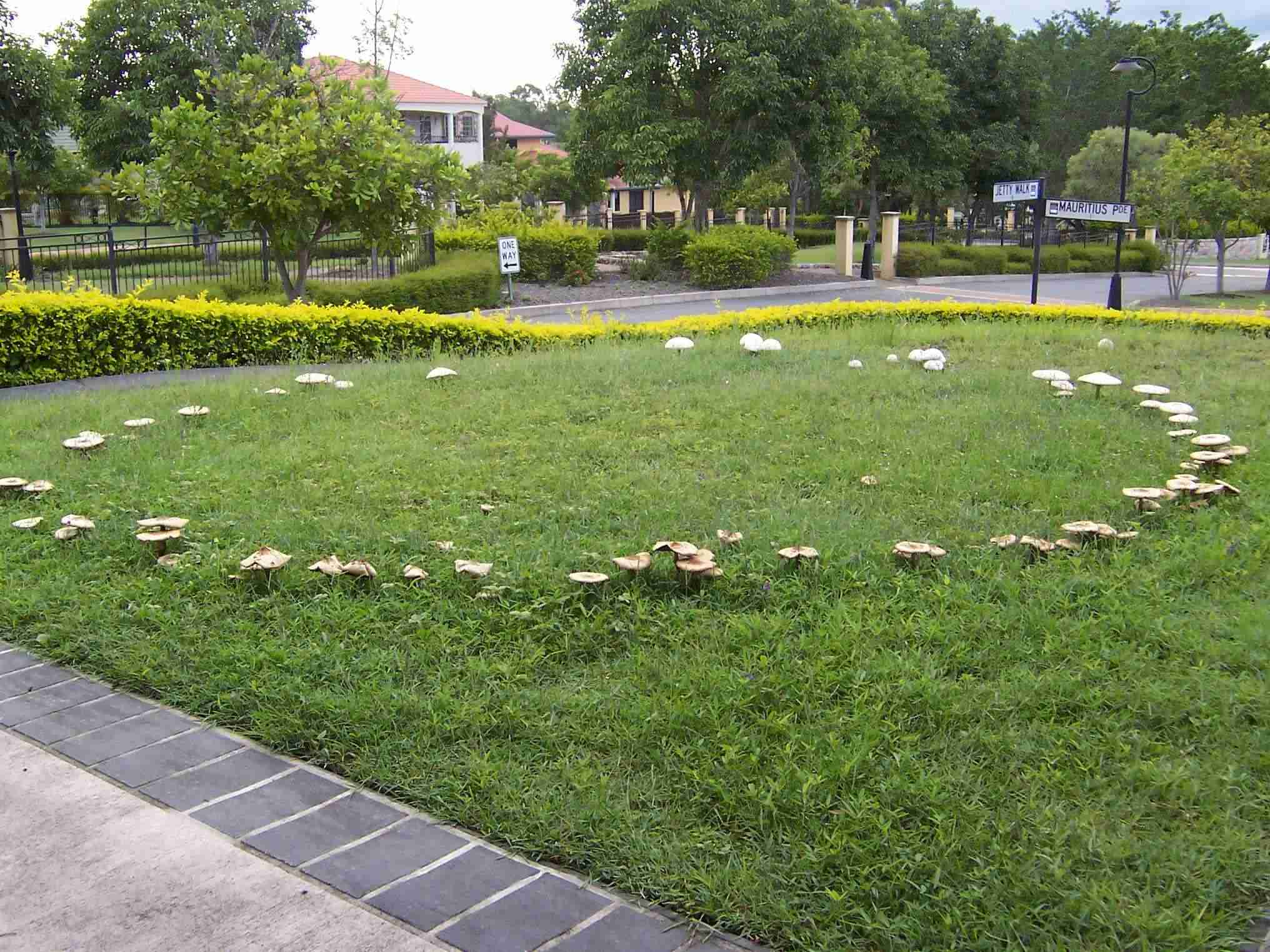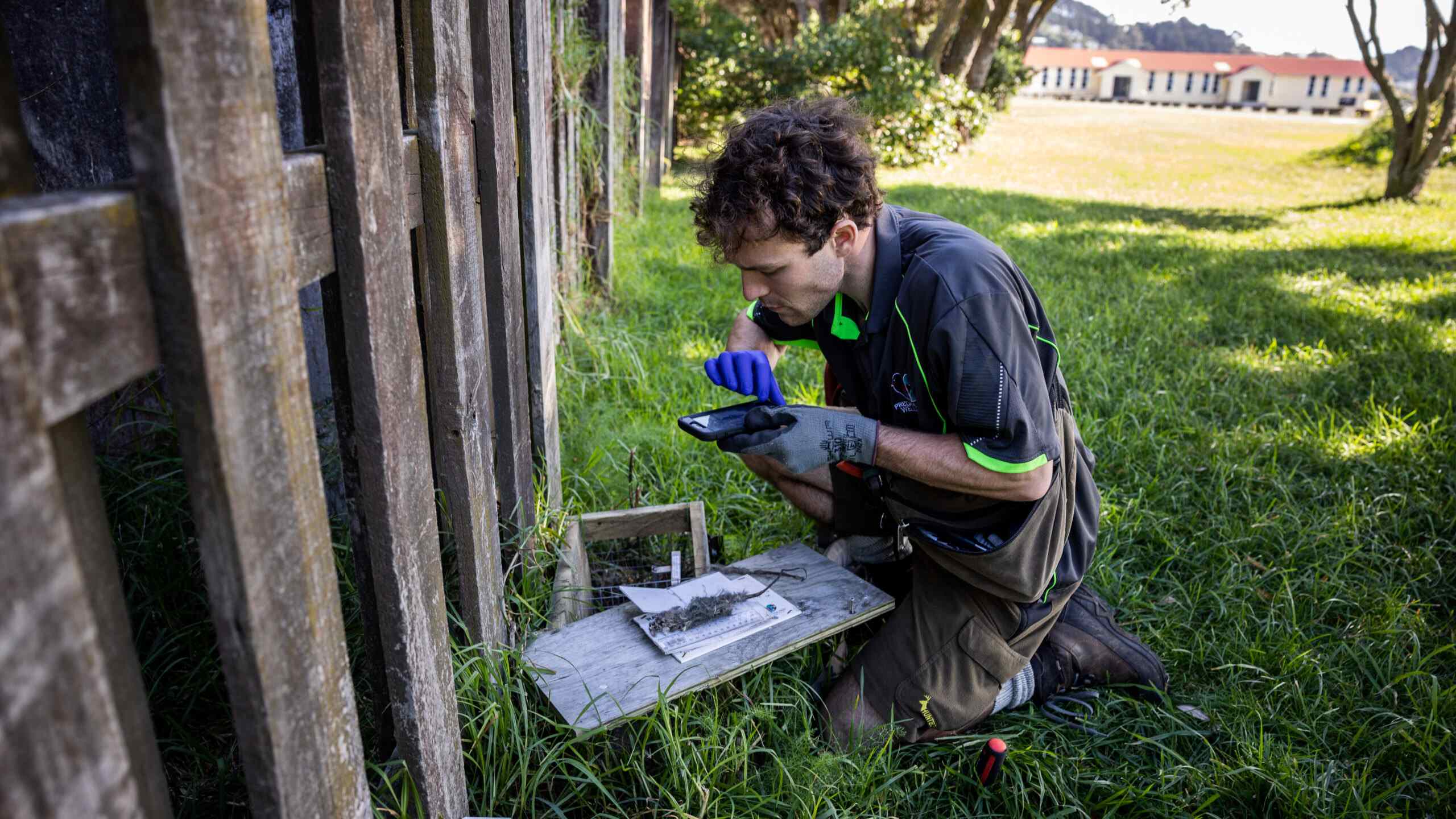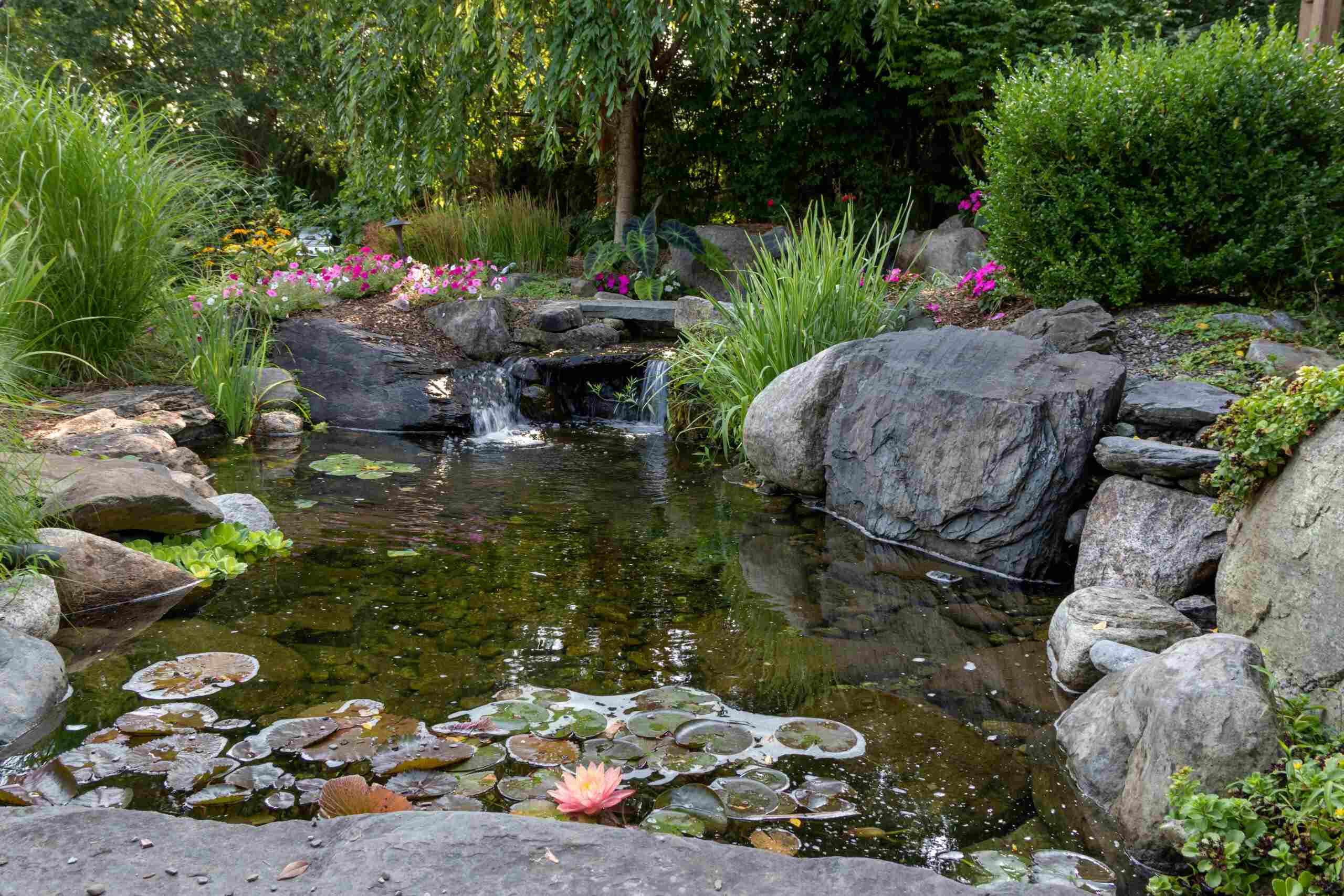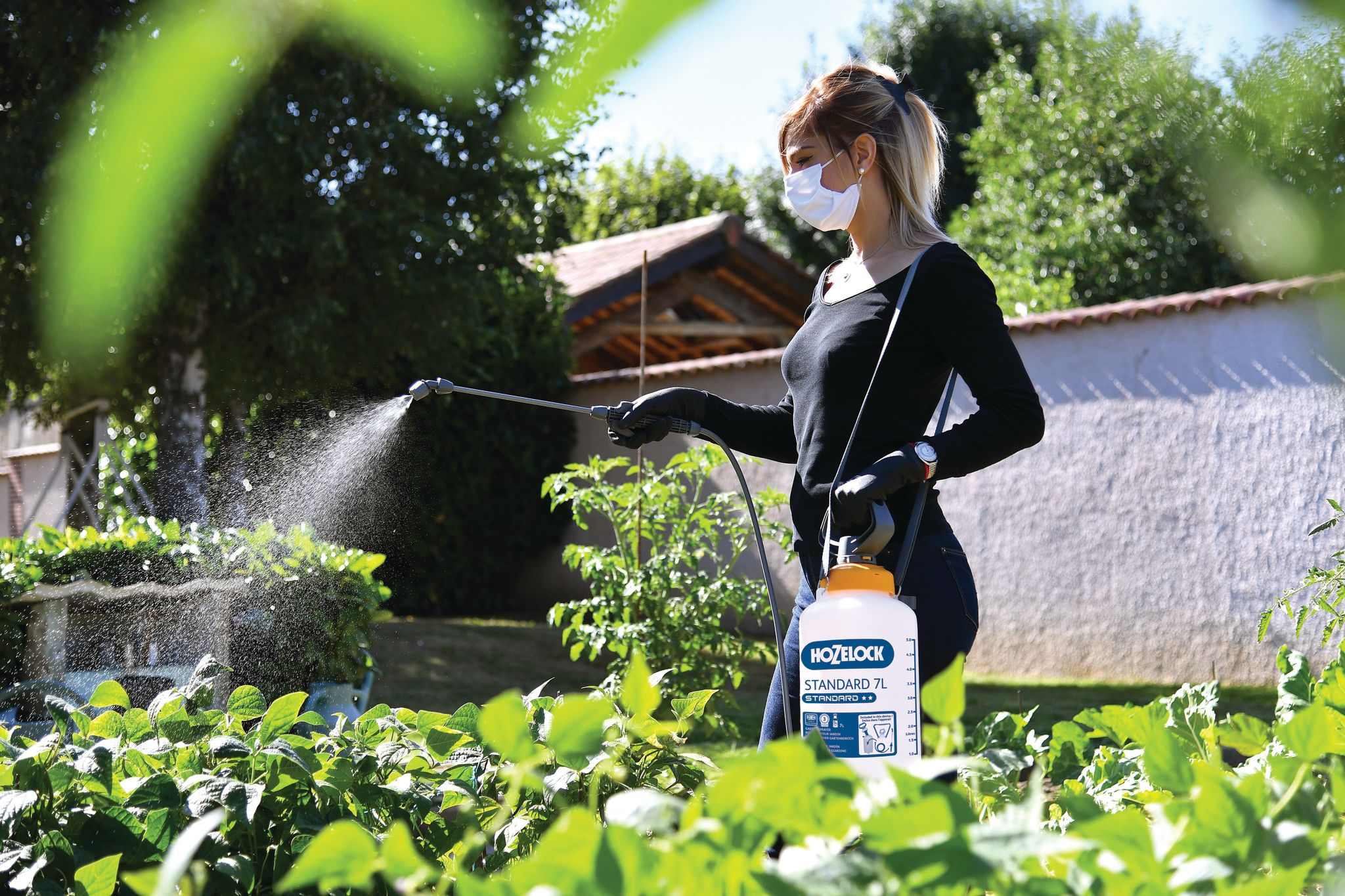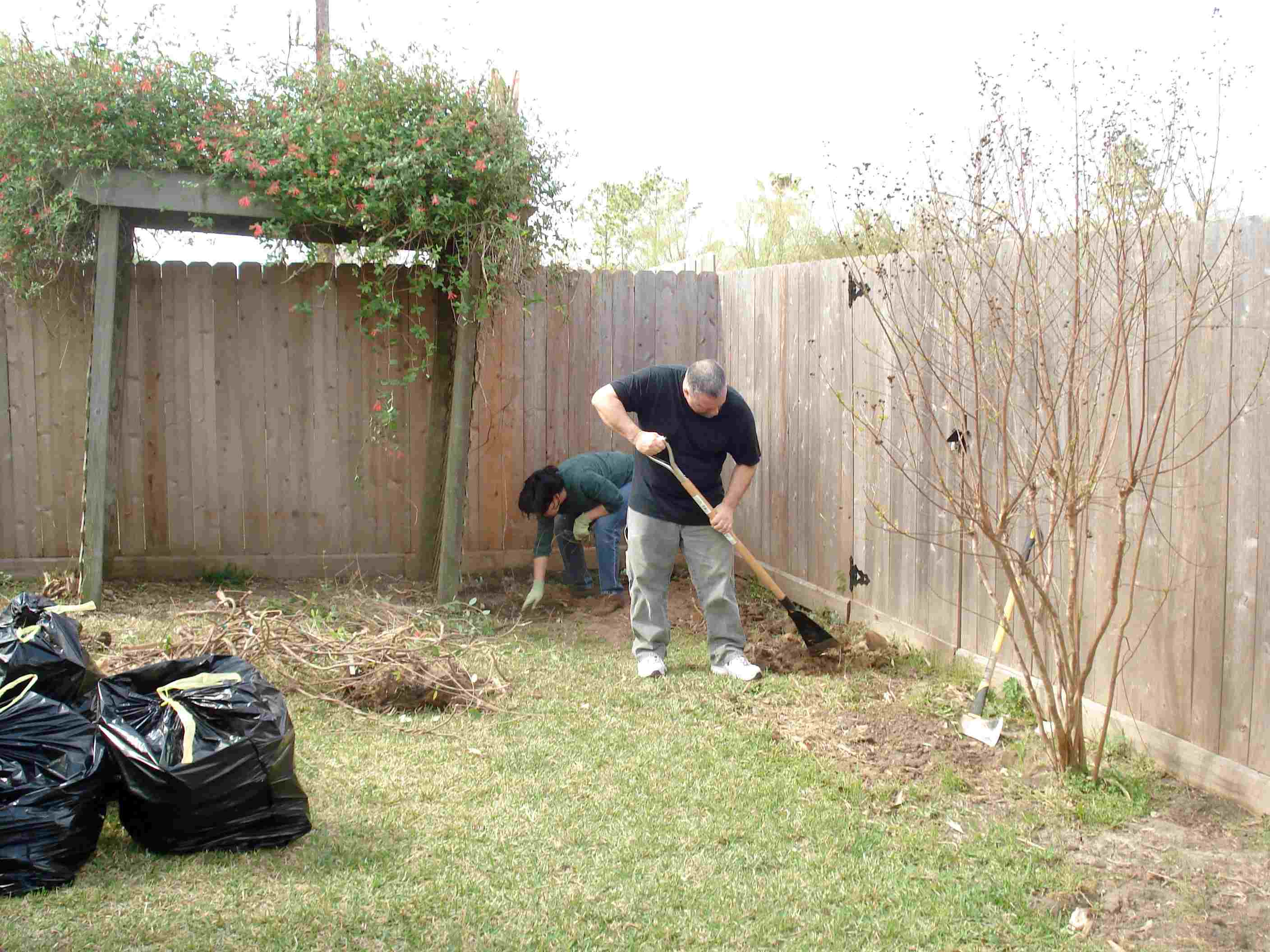Home>Gardening Tips and Tricks>How To Get Rid Of Squirrels In Your Backyard
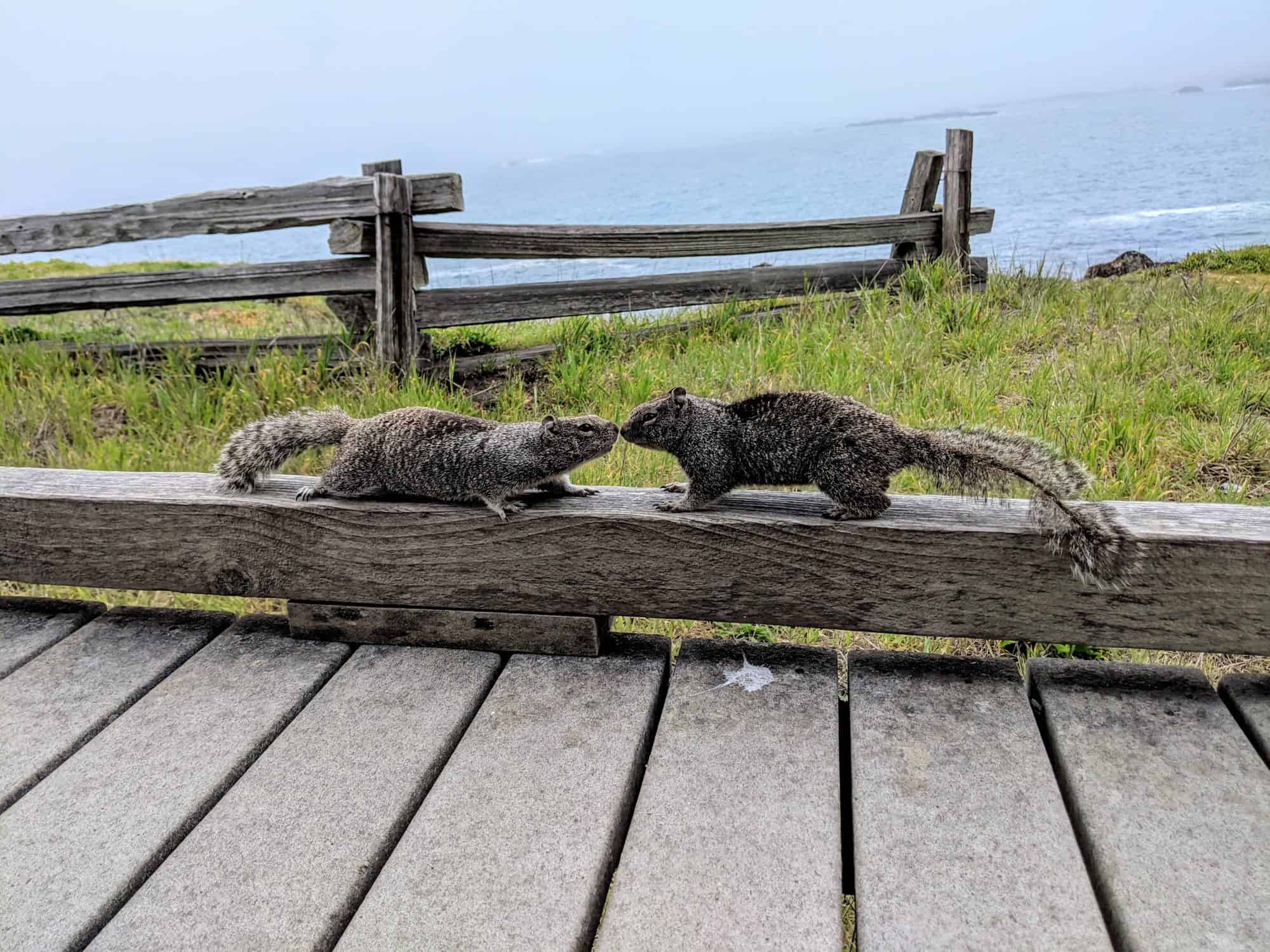

Gardening Tips and Tricks
How To Get Rid Of Squirrels In Your Backyard
Modified: January 22, 2024
Learn effective problem-solving techniques to get rid of squirrels in your backyard. Discover easy and humane methods to keep your outdoor space squirrel-free.
(Many of the links in this article redirect to a specific reviewed product. Your purchase of these products through affiliate links helps to generate commission for Chicagolandgardening.com, at no extra cost. Learn more)
Table of Contents
Introduction
Having a backyard is a wonderful asset, providing a space for relaxation, gardening, and outdoor activities. However, it can also become a haven for unwanted guests, such as squirrels. While these furry critters may appear harmless, they can wreak havoc in your backyard by digging up plants, damaging property, and even causing electrical issues by chewing on wires. Getting rid of squirrels from your backyard is crucial to maintain its beauty and functionality.
Understanding squirrel behavior is the first step in effectively dealing with them. Squirrels are agile climbers, excellent jumpers, and have sharp teeth and claws, making them formidable creatures. They are attracted to backyards because of the abundant food sources, such as bird feeders, vegetable gardens, and fruit trees. Additionally, they seek shelter in trees, attics, and sheds.
In this article, we will explore various methods to get rid of squirrels in your backyard. From creating a squirrel-proof boundary to utilizing natural repellents and traps, we will provide you with practical solutions to tackle this problem. However, it is important to note that squirrels are resilient and resourceful creatures, so be prepared to try a combination of approaches in order to effectively deter them.
Understanding Squirrel Behavior
In order to effectively deal with squirrels in your backyard, it is important to understand their behavior. Squirrels are highly adaptive and tenacious animals that can cause a lot of damage if left unchecked. By knowing their habits and tendencies, you can implement targeted strategies to deter them.
Squirrels are excellent climbers and can easily scale trees, fences, and even buildings. They use their sharp claws and agile bodies to navigate their surroundings with ease. This is important to keep in mind when considering how to create a squirrel-proof boundary in your backyard.
Furthermore, squirrels are notorious for their digging habits. They create burrows in the ground and can uproot plants, damaging your garden or landscaping. If you notice holes and disturbances in your yard, it is likely that squirrels are the culprits.
Another characteristic of squirrels is their incessant gnawing and chewing. Squirrels have sharp teeth that continuously grow, so they need to chew on objects to keep their teeth in check. Unfortunately, this can result in damage to electrical wires, wooden structures, and even outdoor furniture.
Squirrels are also attracted to food sources in your backyard. Bird feeders, vegetable gardens, and fruit-bearing trees are all potential food sources for them. If you have any of these in your backyard, it is important to take precautions to prevent squirrels from accessing them.
Understanding squirrel behavior will help you in deciding the most effective methods to deter them from your backyard. By addressing their climbing and digging tendencies, as well as eliminating their access to food sources, you can successfully mitigate the squirrel problem in your outdoor space.
Identifying Squirrel Damage
When dealing with squirrels in your backyard, it is essential to identify the signs of their presence and the damage they may cause. By being able to recognize squirrel damage, you can take appropriate action to prevent further destruction.
One of the most common types of squirrel damage is the destruction of plants and gardens. Squirrels have a penchant for digging up bulbs, seeds, and newly planted vegetation. If you notice upturned soil or missing plants, squirrels may be responsible. They are particularly fond of digging in vegetable gardens and flower beds, which can be frustrating for avid gardeners.
Additionally, squirrels have a habit of chewing on various materials. They may gnaw on wooden structures, such as fences and decks, causing damage and weakening the integrity of these surfaces. Squirrels may also chew on electrical wires, leading to potential fire hazards and electrical issues. If you notice chew marks or frayed wires, it is a clear indication of squirrel activity.
Another sign of squirrel damage is the presence of nests or burrows. Squirrels create nests using leaves, twigs, and other natural materials. They may build their nests in trees, attics, or even within shed structures. If you notice an unusual accumulation of leaves or debris in certain areas of your backyard, it is possible that squirrels have established their nests or burrows there.
It is important to identify squirrel damage early on to prevent further destruction. By recognizing the signs of their presence, you can implement effective measures to deter them and protect your backyard from unnecessary harm.
Creating a Squirrel-Proof Boundary
One effective method to get rid of squirrels in your backyard is to create a squirrel-proof boundary. By implementing physical barriers and deterrents, you can prevent squirrels from accessing your property and causing damage. Here are some strategies to consider:
1. Seal Entry Points: Carefully inspect your backyard for any openings that squirrels can use to gain access. This includes gaps in fences, holes in walls or structures, and open vents. Use materials like wire mesh or caulk to seal these entry points and prevent squirrels from entering your yard.
2. Install Squirrel Guards: Place squirrel guards around vulnerable areas such as bird feeders and fruit trees. These guards are designed to prevent squirrels from reaching the food sources by creating a slippery or inaccessible surface. Choose squirrel guards made of metal or PVC, as squirrels can easily chew through plastic or weaker materials.
3. Trim Overhanging Branches: Squirrels often use tree branches as a pathway to access your property. Trim any branches that are close to your house or other structures, keeping them at least 6 to 8 feet away. This will make it more difficult for squirrels to jump onto your roof or reach windows and openings.
4. Use Squirrel-Proof Bird Feeders: If you enjoy feeding birds but want to keep squirrels at bay, invest in squirrel-proof bird feeders. These feeders are designed with mechanisms that make it challenging for squirrels to access the bird seed. Look for feeders with weight-activated perches or cages that only allow small birds to access the food.
5. Install Electric Fencing: Electric fencing can be an effective deterrent for squirrels. Install electrified wires around the perimeter of your yard, particularly in areas that are prone to squirrel activity or where they attempt to gain entry. The mild electric shock will discourage squirrels from trying to breach the fencing.
By implementing these strategies, you can create a squirrel-proof boundary in your backyard, limiting their access and reducing the chances of them causing damage. Remember to regularly inspect and maintain these deterrents to ensure their effectiveness over time.
Removing Sources of Attraction
To effectively get rid of squirrels in your backyard, it is important to remove the sources of attraction that draw them in. Squirrels are opportunistic feeders and will readily take advantage of any available food sources. Here are some steps you can take to eliminate these attractions:
1. Secure Bird Feeders: Squirrels are notorious for raiding bird feeders. To discourage them, consider using squirrel-proof feeders or placing a baffle or cone-shaped guard around the feeder pole. These barriers will make it difficult for squirrels to reach the bird seed, while still allowing birds to access it.
2. Harvest Fruit Promptly: If you have fruit-bearing trees or plants in your backyard, make sure to harvest the fruit as soon as it ripens. Leaving fallen or overripe fruit on the ground will attract squirrels. Regularly clean up any fallen fruit to remove the temptation for them to gather in your yard.
3. Secure Garbage Bins: Squirrels are skilled scavengers and can easily access open garbage bins. Make sure your outdoor bins have secure lids that cannot be easily opened by squirrels. Consider using bungee cords or heavy objects to weigh down the lids and deter these curious creatures.
4. Cover Compost Bins: Squirrels are drawn to compost bins, as they find them to be a treasure trove of food scraps. Keep your compost bin covered with a tight-fitting lid or use a compost bin that has a locking mechanism. This will prevent squirrels from accessing the compost and making a mess.
5. Protect Vegetable Gardens: If you have a vegetable garden, squirrels can quickly decimate your crops. Install wire mesh or fencing around the garden to create a physical barrier. Consider burying the mesh a few inches underground to prevent squirrels from digging their way in.
6. Remove Standing Water: Squirrels are attracted to water sources in your yard. Remove any standing water from buckets, birdbaths, or other containers to discourage their presence. Additionally, fix any leaky faucets or pipes that may create puddles, as these can also attract squirrels.
By removing these sources of attraction, you can significantly reduce the likelihood of squirrels visiting your yard. Starving them of readily available food will encourage them to seek sustenance elsewhere, ultimately deterring them from causing damage in your backyard.
Utilizing Natural Repellents
Another approach to getting rid of squirrels in your backyard is by utilizing natural repellents. These substances can be effective in deterring squirrels and encouraging them to seek food and shelter elsewhere. Here are some natural repellents you can try:
1. Cayenne Pepper: Squirrels have a strong sense of smell, and cayenne pepper is known to be a potent deterrent for them. Sprinkle cayenne pepper powder around areas where squirrels are causing damage or entering your yard. The smell will discourage them from approaching those areas.
2. Predator Urine: Squirrels are naturally wary of predators. By using predator urine, such as that of foxes or coyotes, you can create the illusion of danger and deter squirrels from entering your yard. Spray or soak cotton balls in the urine and strategically place them around your property.
3. Mint Plants or Oil: Squirrels dislike the smell of mint. Planting mint around the perimeter of your yard or using mint essential oil on cotton balls placed in areas frequented by squirrels can help repel them. Alternatively, you can create a mint spray by mixing mint oil with water and spraying it around your backyard.
4. Mothballs: Squirrels are not fans of the strong scent emitted by mothballs. Place mothballs around areas where squirrels are causing damage or attempting to enter your yard. Ensure they are out of reach of children and pets, as mothballs can be toxic if ingested.
5. Human Hair: Squirrels are wary of human presence. Collect hair clippings from a barbershop or salon and scatter them around your yard. The scent of human hair can deter squirrels from venturing too close to your property.
It is important to keep in mind that natural repellents may need to be reapplied periodically, especially after rain or heavy winds. Additionally, it may be necessary to use a combination of repellents to find what works best for your specific squirrel problem.
While natural repellents can be effective, it is important to note that they might not guarantee complete squirrel eradication. If your squirrel problem persists or worsens, you may need to consider other alternatives or seek professional assistance.
Installing Squirrel Traps
If other methods have failed to get rid of squirrels in your backyard, installing squirrel traps can be an effective solution. Traps are designed to safely catch squirrels so that they can be released in a more suitable location. Here are some tips for installing squirrel traps:
1. Choose the Right Trap: There are various types of squirrel traps available, including live traps and lethal traps. Live traps are humane and allow you to capture squirrels without harming them. Lethal traps, on the other hand, are designed to kill squirrels. Consider your preferences and local regulations when selecting a trap.
2. Identify Squirrel Activity: Before setting up traps, observe the squirrels’ behavior and identify the areas where they are most active. Look for signs of damage or pathways they use. Set the traps in those areas to increase the chances of successful capture.
3. Bait the Traps: Squirrels are attracted to certain types of food, such as nuts, seeds, and peanut butter. Use these items as bait to entice them into the trap. Place the bait inside the trap, near the trigger mechanism, to ensure the squirrel fully enters the trap to access the food.
4. Set the Traps Correctly: Follow the instructions provided with the trap to ensure it is set correctly. Make sure the trap is stable and won’t topple over easily. You may need to anchor it down or use weights to keep it in place.
5. Regularly Check the Traps: It is important to check the traps regularly, ideally every few hours, to ensure any captured squirrels are not left for extended periods of time. This is particularly important during hot weather, as squirrels can suffer from heat stress if trapped for too long.
6. Release Squirrels Safely: If using live traps, carefully transport captured squirrels to a suitable release location. Ensure the release site is far enough away from your property to prevent the squirrels from returning. Follow any local guidelines or restrictions regarding the release of wildlife.
Installing squirrel traps can be an effective method of removing squirrels from your backyard. However, it’s important to bear in mind that trapping alone may not solve the problem, as new squirrels may move into the area. Combine trap installation with other prevention methods to achieve long-term success in squirrel control.
Seeking Professional Help
If all your attempts to get rid of squirrels in your backyard have been unsuccessful, it may be time to consider seeking professional help. Professional pest control services have the knowledge, experience, and tools necessary to effectively address squirrel infestations. Here are a few reasons why seeking professional help can be beneficial:
Expertise: Pest control professionals specialize in dealing with various types of pests, including squirrels. They are familiar with squirrel behavior, habits, and the most effective methods to control and remove them. Their expertise allows them to develop a customized approach to address the specific squirrel problem in your backyard.
Safe and Humane Methods: Professional pest control companies prioritize the use of safe and humane methods to handle squirrels. They have access to specialized traps and exclusion devices that are designed to capture squirrels without causing harm. They also follow ethical guidelines and regulations related to wildlife removal, ensuring that squirrels are treated with respect and released in appropriate areas.
Comprehensive Assessment: Pest control professionals will conduct a thorough assessment of your backyard and surrounding areas to identify the extent of the squirrel infestation. This assessment will help them determine the best course of action and develop a tailored treatment plan to effectively control the squirrel population and prevent further damage to your property.
Long-Term Prevention: Professional pest control services not only focus on the immediate removal of squirrels but also on implementing preventive measures to ensure they do not return. They can provide recommendations on securing entry points, installing barriers, and removing attractants to prevent future squirrel infestations in your backyard.
Guaranteed Results: Many pest control companies offer guarantees for their services. This means that if the squirrel problem persists even after treatment, they will return to address the issue at no additional cost. This guarantee provides peace of mind and ensures that the problem is fully resolved.
While seeking professional help may incur additional costs, it can be a worthwhile investment, especially if the squirrel infestation is severe or persistent. Professional pest control services offer comprehensive and effective solutions, saving you time and effort in dealing with the problem on your own.
If you decide to seek professional assistance, research reputable pest control companies in your area and choose one that has experience in squirrel removal. Read reviews, get recommendations from friends or neighbors, and request a consultation to discuss the specifics of your squirrel problem and receive a customized treatment plan.
Conclusion
Dealing with squirrels in your backyard can be a challenging task, but with the right strategies and approaches, it is possible to get rid of these pesky critters. Understanding squirrel behavior and identifying the signs of their presence are crucial in developing an effective plan of action.
Creating a squirrel-proof boundary by sealing entry points, installing guards, and trimming overhanging branches can help deter squirrels from accessing your property. Removing sources of attraction, such as securing bird feeders, harvesting fruit promptly, and properly storing garbage, will make your backyard less enticing to squirrels.
Utilizing natural repellents, like cayenne pepper, predator urine, mint, mothballs, and human hair, can help discourage squirrels from entering your yard. Installing squirrel traps can be an effective method to capture and release squirrels away from your property.
If your efforts are not yielding results, it may be necessary to seek professional help. Pest control professionals have the knowledge, expertise, and tools to address squirrel infestations effectively and provide long-term prevention strategies.
Remember, a combination of approaches may be necessary to successfully get rid of squirrels in your backyard. It is important to stay persistent and regularly evaluate and adjust your methods as needed.
By implementing the strategies outlined in this article, you can reclaim your backyard and enjoy a squirrel-free outdoor space. Take action today to preserve the beauty of your backyard and protect your property from squirrel damage.
